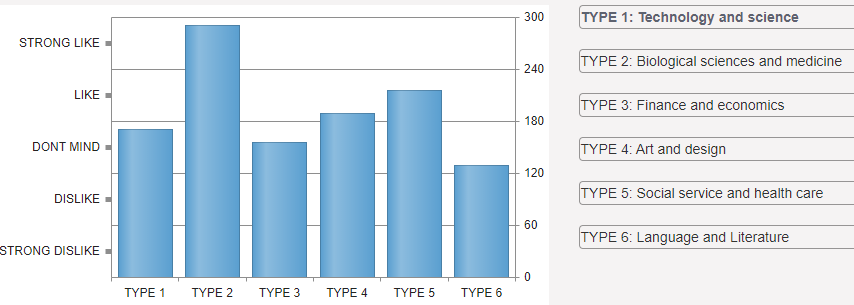Interest In the Future
What lies ahead beyond education?
How do you start developing effective, realistic and suitable career plans?
Planning Based on Educational Attainments
In the past academic attainments have been a foundation of much career decision-making. While educational success is still important subject grades are not sufficient for good career planning.
Jobs are many, varied and changing. Educational subjects on the other hand are relatively few. Furthermore there are plenty of examples of very successful people who had weak academic backgrounds or were even drop-outs. Richard Branson, Walt Disney, Elton John, James Cameron, Frank Lloyd Wright, Bill Gates, Steve Jobs to name a few.
What Distinguishes Successful People?
Typically successful people have a passion for whatever they are doing, what they want, and conscientiously pursue their career goals.

But how do young people discover their own occupational interests and passions?
And how can young people start to make connections between what they know about themselves and the changing world of work?
Occupational Interests
When reliably clarified, occupational interests are very helpful in linking personal factors to the world of work. However young people frequently run into the problem of lack of knowledge about their own occupational (ie job-related) interests. Understanding hobbies and personal interests (eg socialising with friends, playing computer games, sport, listening to music, etc) usually isn’t a good basis for finding satisfying careers.
An important consideration to bear in mind is the distinction between LIKE and PREFERENCE.
For example, suppose you have two visitors, and you ask both if they would prefer coffee and tea. Person A says she would prefer coffee. And person B says he would prefer coffee. Probably you would conclude that A and B like coffee the same.
But that may not be the case.
Suppose you change the question and ask them how they LIKE these drinks. Person A says he hates both but was forced to make a choice so chose coffee. Person B loves both but was forced to make a choice. Relying only on PREFERENCES often leads to spurious results. (Many interest quizzes actually do that.)
On the other hand, relying on LIKE-DISLIKE only can lead to individuals giving the same response to all interest questions, eg LIKE everything, or DISLIKE everything. That’s unhelpful when planning for the future. When someone answers all (or most) one way it’s called a response style. There can be many reasons for this. For example you might ask me a series of questions and to everyone I respond negatively. Reason: because I’m having a really bad day/week/year, and feeling really down.
The best occupational questionnaires use a combination of LIKE and PREFERENCE.

The above is an actual example of a carefully measured occupational interest profile, taking account of both LIKES and PREFERENCES
Contact us to find out more or organise a screen/sharing demonstration >>

